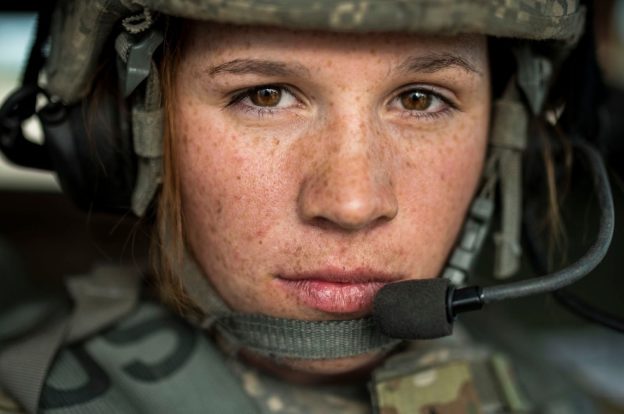For years, women fought for the right to defend our country. While they since have been afforded that opportunity, the harsh reality is that they still face issues, including discrimination and sexual harassment, every day. Sadly, even while bravely serving in the armed forces, women are subjected to egregious acts such as sexual assault. Yet there stands still another consequence of their military service—a much higher rate of addiction amongst female veterans and women serving in the military than those in the general population. While not a physical result of action on the battlefield, addiction is still a very real casualty of military service.
Increased Rates of Addiction in the Military
There are increased rates of addiction amongst both men and women in the military due to the increased stressors and the traumatic experiences they face in combat. While illicit drug use during active duty is considerably low due to a zero-tolerance policy, the numbers increase drastically when men and women leave the service and re-enter civilian life.
According to the National Institute on Drug Abuse (NIDA), 65% of veterans entering a treatment program for substance abuse reported primarily misusing alcohol. This figure is nearly double that of the general population. All soldiers are affected by stress from military life, deployment, and combat.
Fighting the Battle of Discrimination
Women in the military are still subject to gender-based discrimination regularly, despite efforts from the government to change these practices. Despite being as qualified or more qualified than their male peers, women are often overlooked for promotions. In fact, many women will actually cite gender discrimination as their motivation for ultimately walking away from a career in the military.
Blue Star Families, an organization that performs research on the United States military and veterans, and works to affect policy change from government agencies, reported on gender discrimination in their 2020 Military Family Lifestyle Survey Comprehensive Report. Approximately 25% of women reported gender discrimination in training, deployment, and on-base, compared to 2-4% of the men. A more telling 48% of the women reported gender discrimination within their unit or command—those they interacted with the most.
Battling Sexual Harassment on the Front Lines
Women in the military also commonly face sexual harassment while serving their country. Sexual harassment typically is defined as sexually inappropriate or unwelcome verbal or physical advances that are made in public, professional, or social venues, including:
- Catcalls
- Crude remarks
- Comments about physique
- Inappropriate sexualizing of other women
- Explicit talk about sexual activities
- Unwanted invitations for sexual acts
- Spreading false information about sexual activities
Still Facing Friendly Fire as Women
Friendly fire is an oxymoron. The term is used in the military when describing a situation where your forces fire upon your soldiers. In the case of women, they face both sexual threats and assault from their peers and officers.
The threats may include hostile and repeated unwanted advances, physical threats or coercion, threats of military discipline, or missing out on promotions to try to force sex upon the female soldier. Sexual assault may be any unwanted touching of sexual organs or coerced or forced sexual activities. These episodes can be incredibly traumatic and lead to Post-traumatic Stress Disorder (PTSD) or substance abuse.
Why Addiction Takes Its Toll on Women in the Military
When women suffer from the everyday stressors of military life, including deployment and combat, they are at increased risk for addiction. Dealing with the battles of gender discrimination, sexual harassment, sexual threats, and assault can create trauma and PTSD that can be overwhelming to live with.
Many women turn to substances to cope, whether during their active military duty or after discharge as a veteran. Substance use often turns to addiction as their attempts to self-medicate their trauma never seem enough. No matter how much they have given our country, women in the military are often a casualty of their service.
How Military Women Can Find Healing
Women currently serving in the military or those who are veterans who have addictions to drugs or alcohol can find healing by seeking trauma-informed treatment for substance abuse. Because their trauma typically occurred in a male-dominated organization, women will naturally feel safer recovering in a female-specific facility, which is the first principle of trauma-informed care.
Patients will also receive therapy for their trauma during addiction treatment as addressing both addiction and trauma simultaneously works to prevent relapse effectively. By seeking help to break free of addiction, our courageous military women can find healing from both their trauma and their substance abuse.
The brave women of our armed forces face extraordinary life circumstances daily. They deal with the stressors of deployment and combat and the trauma of gender discrimination, sexual harassment, and assault. Because their trauma can lead to addiction, they need trauma-informed care to heal. The Ho Tai Way – Recovery For Women is conveniently located in Southern California near multiple military bases for servicewomen and veterans. We are authorized to accept TRICARE as well. We use trauma-informed care in our residential treatment of addiction and co-occurring mental health diagnoses. We know it is essential for women to have an environment to heal that provides safety, choice, trust, collaboration, and empowerment as they recover from trauma and addiction. We help you break free of the shame and guilt associated with addiction and trauma to reach your full potential as a woman. Contact us today at (714) 581-3974 to begin your healing.









